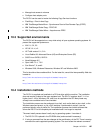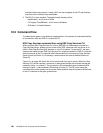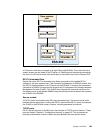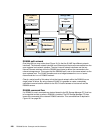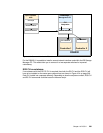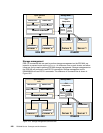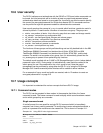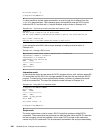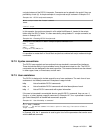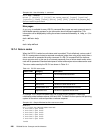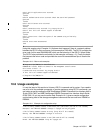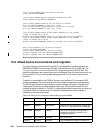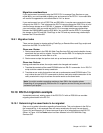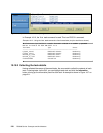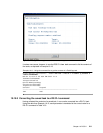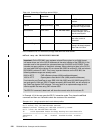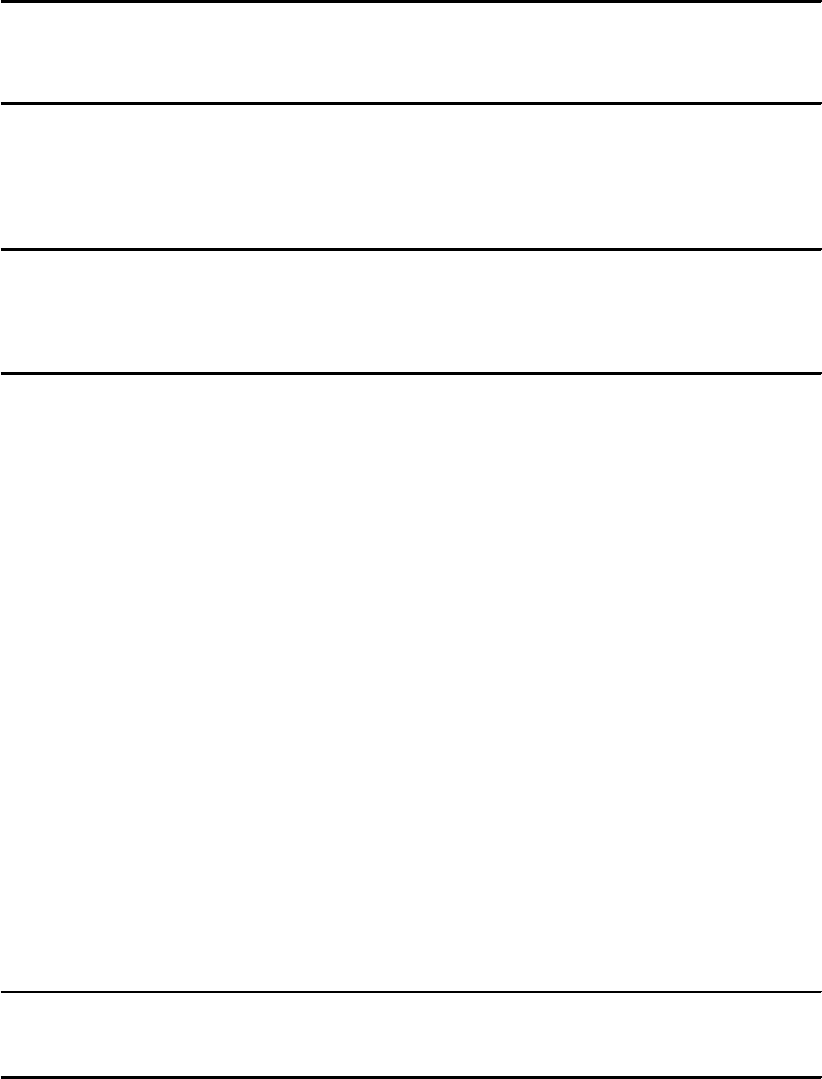
Chapter 10. DS CLI 205
a single instance of the DS CLI interpreter. Comments can be placed in the script if they are
prefixed by a hash (#). A simple example of a script mode script is shown in Example 10-5.
Example 10-5 DS CLI script mode example
# This script issues the 'lsuser' command
lsuser
# end of script
In this example, the script was placed in a file called listAllUsers.cli, located in the scripts
folder within the DS CLI folder. It is then executed by using the
dscli -script command, as
shown in Example 10-6.
Example 10-6 Executing DS CLI in script mode
C:\Program Files\IBM\dscli> dscli -script scripts\listAllUsers.cli
Name Group
===============
admin admin
C:\Program Files\IBM\dscli>
It is possible to create shell or Visual Basic scripts that combine both script mode and single
commands.
10.7.2 Syntax conventions
The DS CLI uses symbols and conventions that are standard in command-line interfaces.
These include the ability to input variables from a file and send output to a file. The DS CLI
commands are also designed to be case insensitive. This means commands can be entered
in either upper, lower, or mixed case, and still work.
10.7.3 User assistance
The DS CLI is designed to include several forms of user assistance. The main form of user
assistance is via the
help command. Examples of usage include:
help Lists all available DS CLI commands.
help -s Lists all available DS CLI commands with brief descriptions of each.
help -l Lists all DS CLI commands with syntax information.
If the user is interested in more details about a specific DS CLI command, they can use
-l
(long) or
-s (short) against a specific command. In Example 10-7, the -s parameter is used to
get a short description of the
mkflash command’s purpose.
Example 10-7 Use of the help -s command
dscli> help -s mkflash
mkflash The mkflash command initiates a point-in-time copy from source volumes to
target volumes.
In Example 10-8, the -l parameter is used to get a list of all the parameters that can be used
with the
mkflash command.



